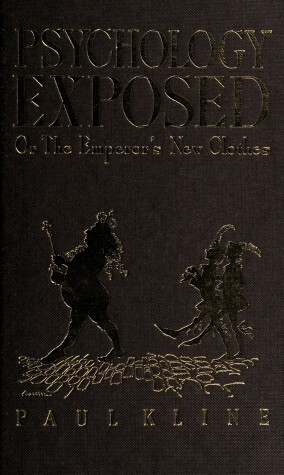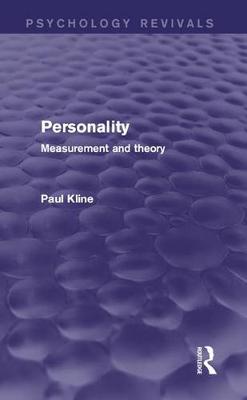Psychology Revivals
3 total works
Psychological tests provide reliable and objective standards by which individuals can be evaluated in education and employment. Therefore accurate judgements must depend on the reliability and quality of the tests themselves. Originally published in 1986, this handbook by an internationally acknowledged expert provided an introductory and comprehensive treatment of the business of constructing good tests.
Paul Kline shows how to construct a test and then to check that it is working well. Covering most kinds of tests, including computer presented tests of the time, Rasch scaling and tailored testing, this title offers: a clear introduction to this complex field; a glossary of specialist terms; an explanation of the objective of reliability; step-by-step guidance through the statistical procedures; a description of the techniques used in constructing and standardizing tests; guidelines with examples for writing the test items; computer programs for many of the techniques.
Although the computer testing will inevitably have moved on, students on courses in occupational, educational and clinical psychology, as well as in psychological testing itself, would still find this a valuable source of information, guidance and clear explanation.
Originally published in 1983 and written in the tradition of the British School of Psychology, Spearman, Burt, Eysenck, Cattell, this book from a well-known author was exceptional at the time in its attempt to wed quantification and psychological theory in the study of personality.
The student is presented with a discussion of the different methods of measuring personality and the various findings which have been made. The results are then discussed in the light of psychological theories of personality and here the author stresses the need for a theory with a properly quantified bias.
However, the emphasis on findings from measurement and not the measurement itself makes the book psychological, truly about personality and not simply another text on psychological measurement.


